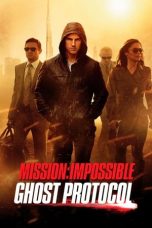- Source: Kremlin Regiment
The Kremlin Regiment (Russian: Кремлёвский полк, romanized: Kremlyovskiy polk), also called the Presidential Regiment (Russian: Президентский полк, romanized: Prezidentskiy polk), is a unique military regiment and part of the Russian Federal Protective Service with the status of a special unit. The regiment ensures the security of the Kremlin, its treasures, and state officials. In accordance with the federal law of December 8, 1997 "On Immortalizing the Soviet People’s Victory in the Great Patriotic War of 1941–1945", the regiment also maintains a guard of honor (Russian: Почётный караул) at the eternal flame of the Tomb of the Unknown Soldier. The regiment is housed in the historic Kremlin Arsenal.
History
When the leaders of the Soviet Union moved from Petrograd to the Moscow Kremlin in early 1918, their protection was entrusted to the Red Latvian Riflemen, under the command of the Commandant of the Kremlin Garrison. In September 1918, the Latvian Riflemen left for the fronts of the Civil War, and they were replaced by the officer cadets of the 1st WPKA Soviet Joint Military School "All-Russian Central Executive Committee" that were redeployed into the Kremlin for this purpose. In 1924, they were assigned with the duty to guard Lenin's Mausoleum by orders of the ARCEC.
In October 1935, the officers' academy left the Kremlin for the Moscow district of Lefortovo and a Special Purpose Battalion was created to replace them on Kremlin and Mausoleum guard duties. On January 28, 1936, the battalion – and the Kremlin Garrison (Komendatura Kremlya), to which it was subordinated – were transferred from the People's Commissariat of Defense of the USSR to the People's Commissariat of Internal Affairs (NKVD) of the USSR. The UKMK and the 1st Division were separate public security units with neither subordinate to the other, which would not prevent them collaborating closely in Kremlin security activities.
On April 8, 1936, in accordance with Order No. 122 for the Moscow Kremlin Garrison, the Special Purpose Battalion became the Special Purpose Regiment; this day is considered the birthday of the regiment. However, the Regiment's Day is celebrated annually on May 7. Since in recent years the date has also been the day of Russian presidential inaugurations, the new President of Russia, following his oath-taking ceremony, receives the salute of the regiment on this day.
When the Great Patriotic War began in 1941, the units of the Kremlin Garrison were made responsible for defending the Kremlin, where the State Defense Committee and Chief Military Headquarters were located. On June 25, 1941, the Commandant of the Garrison ordered the regiment to reinforce the defenses, and the regiment set up round-the-clock guard on the Kremlin walls. In 1942–1943 four groups of snipers from the Kremlin Regiment were sent to the Western and Volkhov Fronts. The snipers killed more than 1,200 German soldiers and officers, losing only 97 men in combat. On February 23, 1944, the Kremlin Regiment was decorated with the Order of the Red Banner. Three battalions from the regiment took part in the Moscow Victory Parade of 1945 on Red Square.
In 1952 the regiment was reorganized into the Separate Special Purpose Regiment. On May 7, 1965, it was decorated with the Order of the Red Banner for its military achievements during the Great Patriotic War. On May 8, 1967, the regiment took part in the unveiling ceremony of the Tomb of the Unknown Soldier in the Alexander Garden. In 1973 the unit was renamed the Separate Red Banner Kremlin Regiment, later receiving an Order of the October Revolution. Before being deprived of Mausoleum guard duties in 1993 as a result of the collapse of the Soviet Union and the constitutional crisis of that year, the regiment finally received its current designation in accordance with a presidential decree of March 20 that year, this time under the Federal Protective Service. Since 1997 the Kremlin Regiment has resumed guard duties by presidential decree on the Tomb of the Unknown Soldier and its Eternal Flame, keeping alive the legacy of those who served on the Eastern Front.
On September 2, 2002, on the basis of the 11th Cavalry Regiment (the Moscow Military District movie-making cavalry unit) a cavalry escort unit was formed as part of the Presidential Regiment. Starting in 2004 a Guard Mounting ceremony has been held on Cathedral Square on Sundays, from March to October.
On May 7, 2006, the regiment gained a new regimental color modeled on the ones used by the Imperial Guard units. Around that time it also acquired special ceremonial uniforms closely modeled on those worn on parade by the infantry and the cavalry of the Russian Imperial Guard until 1914. These are worn in addition to modern style dress uniforms adapted from those utilised during the Soviet period. The historical uniform is in the historical wave-green colouring with cornflower blue piping and facings, whereas the modern dress uniform is a navy blue with cornflower blue piping. The historical dress uniform is a closed-collar tunic with a cornflower blue plastron, whereas the modern dress uniform is an open-collar jacket with a white dress shirt and tie. Shoulder boards are entirely ceremonial for both uniforms, both in entirely different designs, despite the ranks of the troops being the same between each. For both, only officers have ranks displayed. When in modern dress uniforms, soldiers wear peaked caps with a Soviet-style wreathed cockade. For historical dress, troops wear shakos with a sunburst Imperial eagle emblem. In historical dress, enlisted soldiers wear white belts and officers wear silver sash belts. In modern dress, all soldiers wear golden aigulettes and golden belts. In historical dress, gorgets are reflective of imperial officer insignia, whereas in modern dress, these are reflective of the Soviet general insignia. For both, white gloves, tall jackboots are worn and either SKS rifles or sabres are carried. During winter, double-breasted greatcoats are worn, these are gray for the historical dress uniform and navy blue for the modern dress uniform. The Regiment's Presidential Band wears white uniforms similar to those by the Imperial Guard bands of the late 19th century. The regiments casual dress is navy blue and features either a peaked cap or cornflower blue beret.
Uniforms based on the ones used by the infantry of the Regiment during the Second World War were worn for the first time by a platoon from the 1st Honor Guard Company during the 2015 Spasskaya Tower Military Music Festival and Tattoo.
On April 16, 2016, the Guard Mounting that day featured the first woman officer to serve in the Cavalry Squadron, the first time this had happened in a guard changing ceremony. This was also the first to be live streamed online.
Notable servicemen of Kremlin Regiment
Mikhail Kasyanov, former Prime Minister of Russia, who was later named a “foreign agent” by the Russian government
Alexander Korzhakov, former head of the Federal Protective Service of Russia
Andrei Lugovoi, deputy of the State Duma who was later indicted by UK authorities on charges of murdering Alexander Litvinenko.
Component units
Regiment HQ
Presidential Band of the Kremlin Regiment
1st Battalion, Kremlin Regiment
2nd Company
3rd Company
4th Company
5th Company
2nd Battalion, Kremlin Regiment
6th Company
7th Company
8th Company
9th Company
3rd Battalion, Kremlin Regiment
1st Honor Guard Company
11th Honor Guard Company
Automotive Company
Presidential Cavalry Escort Battalion, Kremlin Regiment (former 11th Cavalry Regiment)
10th Company
12th Company
1st Cavalry Squadron
2nd Cavalry Squadron
Support Squadron
4th Operational Reserve Battalion, Kremlin Regiment
Operational Reserve Company
Protection Company
= Band
=The Presidential Band of the Russian Federation serves as the official military band for the President of Russia, playing at official ceremonies and receptions for high-ranking officials. it is affiliated with the Military Band Service of the Armed Forces of Russia.
= Ceremonial cavalry
=The cavalry escort takes part in the Russian presidential inauguration, as well as the Moscow Victory Day Parade on Red Square. Historically, it has taken part in processions on 7 November, specifically in 1941, 1967 and 1987. In certain parades, it is the only unit to represent the FSO on parade. Since 2005 the Cavalry Escort Squadron wears, on select occasions, dress and service uniforms worn by the cavalry units of the Red Army and the NKVD. In addition, since 2004, the cavalry has been participating in the changing of the guard on Cathedral Square and annually performs a demonstration program at the races for the President's Prize.
Gallery
See also
154th Preobrazhensky Independent Commandant's Regiment
Semyonovsky Life Guards Regiment
Awards of the Federal Protective Service of the Russian Federation
Federal Protective Service of Russia
Federal Security Service of Russia
Ninth Chief Directorate
References
External links
Media related to Kremlin Regiment at Wikimedia Commons
Presidential Regiment – archive.kremlin.ru
Regimental association website
Kremlin Guards Don Spacesuits In Battle Against Winter Weather
Kata Kunci Pencarian:
- Invasi Ukraina oleh Rusia
- Tom Clancy
- Batalyon Azov
- Kremlin Regiment
- Red Square
- Federal Protective Service (Russia)
- Kremlin Wall Necropolis
- Russian presidential inauguration
- Kremlin Arsenal
- Semyonovsky Life Guards Regiment
- Commandant's Office of the Moscow Kremlin
- Fifth inauguration of Vladimir Putin
- Mikhail Barsukov
Malbatt: Misi Bakara (2023)
No More Posts Available.
No more pages to load.






